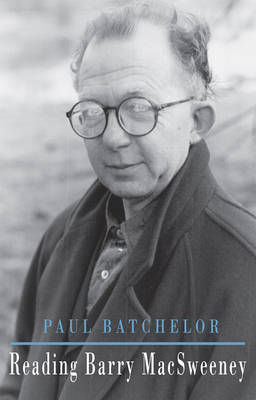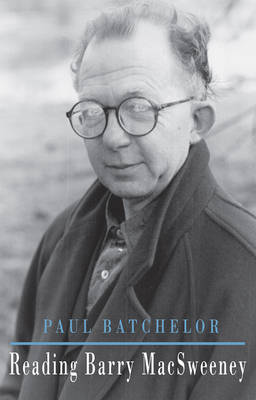
- Retrait gratuit dans votre magasin Club
- 7.000.000 titres dans notre catalogue
- Payer en toute sécurité
- Toujours un magasin près de chez vous
- Retrait gratuit dans votre magasin Club
- 7.000.000 titres dans notre catalogue
- Payer en toute sécurité
- Toujours un magasin près de chez vous
16,95 €
+ 33 points
Description
Barry MacSweeney was described as 'a contrary, lone wolf...[whose] ear for a soaring lyric melody was unmatched' (Nicholas Johnson, Independent). MacSweeney found fame with his first book, The Boy from the Green Cabaret Tells of his Mother, which appeared when he was just nineteen years old. But he soon retreated from the publicity, and for almost thirty years his poetry appeared only in small press publications. Identifying himself with Chatterton and Rimbaud, MacSweeney developed a poetics based on experiment and excess, from the fragmented lyricism of 'Brother Wolf' to the political anger of 'Jury Vet'; from the dizzying historical perspectives of Ranter to the nightmarish urban landscape of Hellhound Memos. In 1997, MacSweeney once again found a wider audience, with the publication of his last full-length book, The Book of Demons, which recorded his fierce fight against alcoholism. This book also included Pearl, a sequence of tender lyrics celebrating the poet's first love and his rural Northumbrian childhood. At the time of his death in 2000, MacSweeney was preparing a retrospective selection of his work for publication. When Wolf Tongue: Selected Poems 1965-2000 appeared in 2003, it brought a wealth of poetry back into print, displaying the incredible range, ambition and quality of MacSweeney's work. Reading Barry MacSweeney is the first book of essays to assess MacSweeney's achievement. Bringing together academic critics, poets and friends of the poet, the book considers many aspects of MacSweeney's career, including his political verse, his re-imagining of pastoral poetry, his love of popular music, and his mapping of Northumberland. Contributors include Professor W.N. Herbert, Matthew Jarvis, Peter Riley, Professor William Rowe, Harriet Tarlo and Professor John Wilkinson, as well as MacSweeney's journalist friend Terry Kelly, and poet S.J. Litherland, MacSweeney's former partner.
Spécifications
Parties prenantes
- Auteur(s) :
- Editeur:
Contenu
- Nombre de pages :
- 199
- Langue:
- Anglais
- Collection :
- Tome:
- n° 13
Caractéristiques
- EAN:
- 9781852249885
- Date de parution :
- 21-11-13
- Format:
- Livre broché
- Format numérique:
- Trade paperback (VS)
- Dimensions :
- 137 mm x 216 mm
- Poids :
- 317 g







